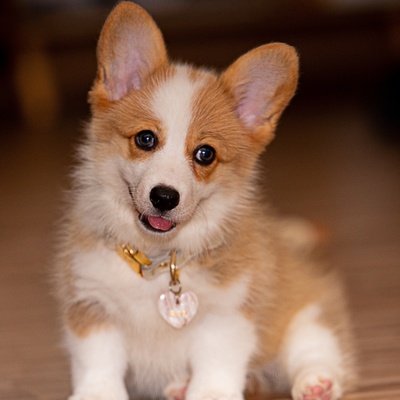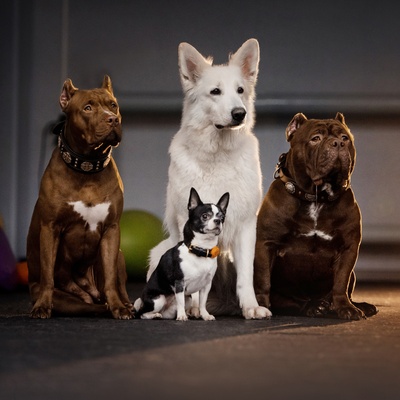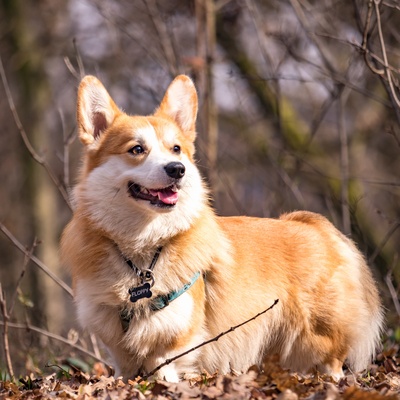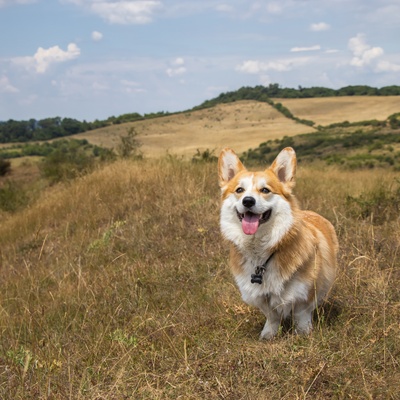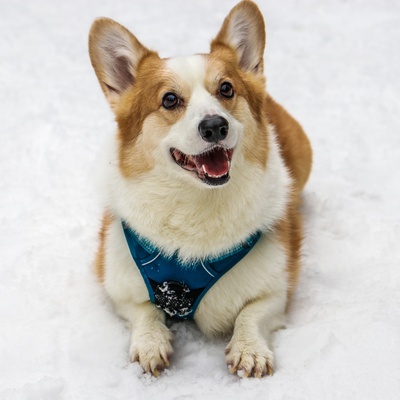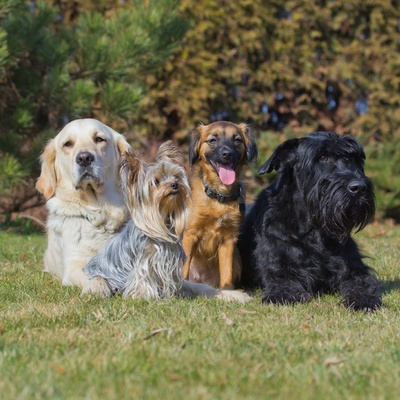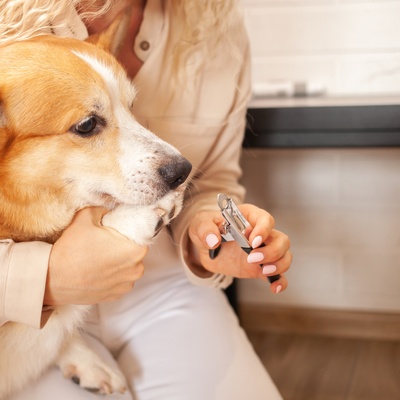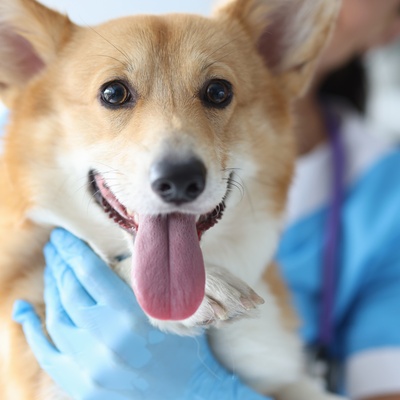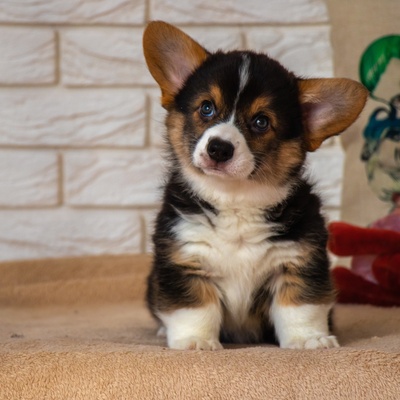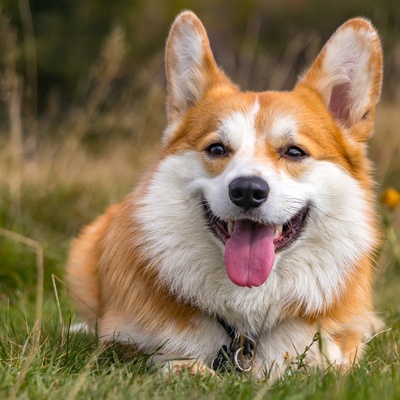Introducing the Corgi
Discover all there is to know about the Corgi: its characteristics, behavior, training, and its cost.
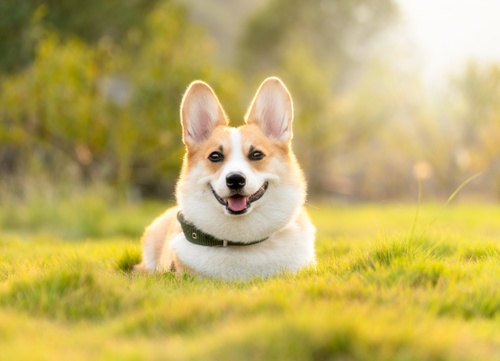
Discover all there is to know about the Corgi: its characteristics, behavior, training, and its cost.
The Corgi, primarily known for its association with the British royal family, has a rich history that extends beyond its royal connections. Originating from Wales, the Corgi was initially bred for herding cattle and sheep. Today, the Corgi stands out as one of the most beloved dog breeds in the UK and beyond.
These dogs display a remarkable balance of qualities: they are both alert and affectionate, making them excellent family pets as well as vigilant companions. Corgis are known for their sociable and friendly disposition, often seeking to form strong bonds with their owners and displaying endearing signs of affection.
This section outlines the unique features of the Corgi breed.
The Corgi belongs to the herding group (group 1), known for their intelligence and ability to control the movement of other animals.
Corgis are small to medium-sized dogs. Typically, they stand about 10-12 inches at the shoulder and weigh between 25-30 pounds.
Corgis have a double coat with a soft, dense undercoat and a longer topcoat. This dual-layer provides insulation and protection.
Corgi coats can vary but are predominantly found in shades of red, sable, fawn, black and tan, with or without white markings.
They are adaptable to various living environments but thrive best where they have space to play and exercise.
Known for their friendly and sociable nature, they generally get along well with children and can coexist peacefully with other pets if properly socialized.
Corgis are generally robust, but like many breeds, they are prone to certain hereditary health issues, including hip dysplasia and eye conditions.
Corgis, with their intelligent and eager-to-please nature, are relatively easy to train.
We can help!
Every dog has its own character, and so do you. Making the right choice will ensure his well-being and yours.
Take our quiz to find out which breed is right for you, based on your personality, lifestyle, location and many other criteria.
Don't wait any longer and take the quiz to find out the answer!
With a thick, water-resistant coat, typically in shades of red, sable, or fawn, and a distinctive fox-like face, the Corgi possesses a unique charm that's both regal and endearing.
Corgis are among the smaller dog breeds, with females typically measuring between 10 and 12 inches, and males slightly taller. In terms of weight, female Corgis range between 24 and 28 pounds, while males can weigh up to 30 pounds. Despite their small stature, Corgis exhibit a rapid growth phase.
Puppies grow quickly in the first few months, nearly doubling their weight. By the age of one, most Corgis have reached their full adult size and weight, showcasing their characteristic low-to-the-ground but strong and agile physique.
The Corgi's coat is a defining feature of the breed, characterized by a medium-length topcoat and a shorter, thick undercoat. The outer coat is slightly coarse, providing weather resistance, while the undercoat is dense, giving them a plush, soft feel.
The color palette of the Corgi's coat typically ranges from red, sable, fawn, black and tan, often combined with white markings.
Corgi's double coat requires regular grooming to maintain its condition and manage shedding. While they shed moderately throughout the year, the shedding intensifies during spring and autumn. Regular brushing, at least a couple of times a week, is essential to remove loose hair and prevent matting.
Bathing a Corgi should be done sparingly, only when necessary, as their coat is relatively self-cleaning and too frequent baths can strip the natural oils from their skin and fur. Seasonal grooming adjustments are necessary to keep their coat in optimal condition, ensuring comfort and health.
The Corgi is a dog that exemplifies balance and proportion in a small package. The breed's overall appearance is one of strength and sturdiness, despite its modest size.
The head of a Corgi is distinctive, with a broad forehead and a slightly tapered muzzle, giving it a fox-like expression. Despite its short stature, the Corgi's body is surprisingly muscular and strong.
The Corgi is known for its friendly, intelligent, and devoted nature. They are particularly known for their sociability, playful demeanor, and strong attachment to family members.
With over 400 dog breeds classified into 10 distinct groups, each group embodies breeds with shared features and traits. The Corgi belongs to the group one wich is the herding group, which includes breeds like the Border Collie, Shetland Sheepdog, and the Australian Shepherd.
Dogs in this category are traditionally working dogs, known for their incredible intelligence, agility, and instinctual behaviors. These breeds excel in tasks that require decision-making, problem-solving, and obedience. Corgis, in particular, stand out with their remarkable intelligence and alertness, combined with a friendly and affectionate temperament.
Corgis are renowned for their playful and outgoing nature. They are extremely loyal to their family, often forming a strong bond with their owners. Their affectionate demeanor is coupled with a desire for interaction and engagement.
These dogs thrive on attention and love to be involved in family activities. A Corgi's happiness is closely tied to the presence and attention of its owner, making them ideal for families who can dedicate time and affection. While independent in spirit, they still value companionship and can be quite expressive in showing their love and loyalty.
Corgis are naturally sociable and have a generous spirit, making them great companions for both humans and other pets. They generally get along well with people, including respectful children, and can be excellent family pets.
However, their herding instinct may sometimes lead them to try and herd children, which should be managed through early training and socialization. Introducing a Corgi to various social situations from a young age is crucial for developing well-rounded social skills. This ensures they grow into well-adjusted adults, comfortable around both people and other animals.
Corgis are remarkably adaptable and can thrive in various living environments, from apartments to spacious houses, and in both urban and rural settings. Despite their adaptability, they require consistent attention and interaction from their owners.
Corgis enjoy being part of the family's daily activities and can become unhappy if left alone for extended periods. Regular walks are essential for their well-being, with at least two walks a day, each lasting around 30 minutes, being ideal to keep them healthy and content.
While Corgis can adapt to indoor living, they have a natural curiosity and energy that makes an outdoor space advantageous. Access to a secure yard or garden allows them to explore and play freely, satisfying their instinctual needs.
This breed enjoys various activities and mental stimulation, so providing them with opportunities to play, explore, and engage in training exercises is crucial for their overall happiness and health. Although they are small, Corgis have a strong herding instinct and benefit from having space to roam and exercise.
Corgis are known for their superior intelligence and eagerness to learn, making them a delight to train. They respond well to positive reinforcement techniques and enjoy the mental stimulation that training provides. Due to their herding background, Corgis can sometimes show a streak of independence, so it's important to establish yourself as the pack leader early on. Consistent, fun, and engaging training sessions are key.
To ensure their safety during off-leash activities, equipping them with a GPS collar, like those offered by Weenect, can be a prudent measure to prevent losses or escapes, allowing owners to track their whereabouts with ease.
Corgis possess a remarkable ability to listen and respond to commands. This breed is not only intelligent but also attentive, making them highly responsive during training sessions. They do, however, have a playful and sometimes stubborn side, so patience and creativity in training are essential. It's important to keep training sessions short, engaging, and full of positive reinforcement.
Corgis excel in various canine sports and activities, showcasing their versatility and adaptability. Their natural herding instincts can also be channeled through activities like agility training, which not only exercises their body but also provides mental stimulation.
Take the test and find out the dog breed that matches your personality and lifestyle.
Corgis are generally healthy and robust dogs, but like any breed, they require daily care and attention to maintain their well-being and prevent diseases.
Corgis generally enjoy good overall health but are predisposed to certain conditions. They may be prone to obesity if not properly exercised and fed, which can lead to joint problems like hip dysplasia. Other common issues include certain eye conditions and, due to their long backs, spinal problems. Typical symptoms to watch for include lethargy, loss of appetite, or discomfort. With proper care, the average lifespan of a Corgi ranges from 12 to 15 years.
Regular veterinary care is essential to your Corgi's long-term health. This includes vaccinations, deworming, and flea and tick control. Daily care is also important. This breed requires regular brushing to keep the coat healthy, weekly ear cleanings to prevent infections, and regular dental care to prevent tartar buildup.
Trimming the nails is necessary to prevent discomfort and mobility problems. It is also important to be aware of possible allergies. Consult your veterinarian for dietary and environmental recommendations. Corgis are not hypoallergenic, so this may be a consideration for those with allergies.
Corgis, like all dog breeds, need a specific, balanced diet for good health and energy. Their diet should be rich in proteins and vitamins, and high-quality kibble for small to medium breeds is ideal for providing essential nutrients.
Adding lean meats is beneficial, but it's important to watch fat levels to prevent weight problems. Proper meal timing and portion control are also key to prevent overeating and obesity in Corgis.
Corgis are well-regarded for their charm and character, and there are several reputable breeders across Great Britain.
If you are thinking about adopting a Corgi, it is very important to make an informed decision. It is important to choose a reliable breeder and visit their facility to check on the dogs' living conditions and behavior. Integral to this process is checking the health of the puppies and their parents.
Lastly, it's mandatory to have your dog microchipped by the age of 8 weeks and registered on a database like Petlog or Animal Tracker. This is legally required in Great Britain, and failure to comply can result in a £500 fine. Microchipping can be done by your vet for a small fee, or for free at any Blue Cross center.
The cost of acquiring a Corgi varies based on factors like lineage, pedigree, breeder reputation, and age. On average, Corgi puppies can range from
to
from a breeder.
Bear in mind that owning a Corgi also involves ongoing expenses, including veterinary care, food, and grooming. The annual cost for maintaining a Corgi typically ranges from
to
, depending on health needs and lifestyle.
Choosing a dog that matches your personality and lifestyle will ensure your well-being and his!
To access the most relevant information, suitable payment methods, and delivery in your region, please select the website corresponding to your country.
